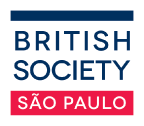Brazilian Expressions
/PARA INGLÊS VER: it is an expression coined in the XIX century, laying its roots on the British banning of human trafficking by the Slave Trade Act of 1807. The measure was not welcomed by the Portuguese, but they had to accede to the British demands after the invasion of Portugal by Napoleon and the subsequent transfer of the Portuguese Court to Brazil escorted by the Royal Navy. In 1810, Portugal and the UK signed a treaty to progressively eliminate slavery, this was never accomplished. With Brazilian independence, new efforts were made, and, in 1826, Brazil and the UK signed a new treaty aiming to outlaw slave trade in three years. Again, unaccomplished. New rounds of British diplomatic pressures led to the enactment of the Feijó Law of 1831, declaring free all slaves entering the country after its enactment. This is the law that originated the expression, enacted for the “English eyes” as a smoke screen conceived to hide the continuity of traffic and slavery, which came to an end only in 1888.
CHAVE INGLESA: this is the Brazilian name for a WRENCH or SPANNER. It was baptized after the nationality of its inventor, Richard Clyburn, an English engineer.
MÃO INGLESA: expression to define those streets in which the cars go forward on the left.
BATATA INGLESA: The common potato
BORDADO INGLES: a ribbon with decorative embroidery.
RENDA IRLANDESA: a type of artisanal embroidery made in the city of Divina Pastora, State of Sergipe which has been declared a Brazilian Immaterial Heritage by the IPHAN.
RITO ESCOCÊS: One of the several Rites of Freemasonry.
SAIA ESCOCESA: The kilt. In Brazil, it also defines any female skirt with crisscrossed horizontal and vertical bands in multiple colors.
“ENGLISH SPEAKING” CITIES: Filadélfia (BA); Americano do Brasil (GO); Britânia (GO); Doverlândia (GO); Nova América (GO); Califórnia (PR); Londrina (PR); Nova Londrina (PR); Americana (SP); Filadélfia (TO).
EDUARDO SZAZI


